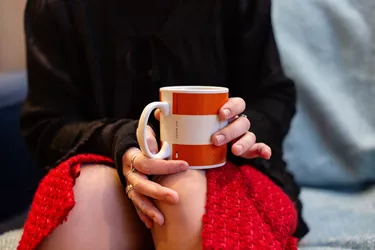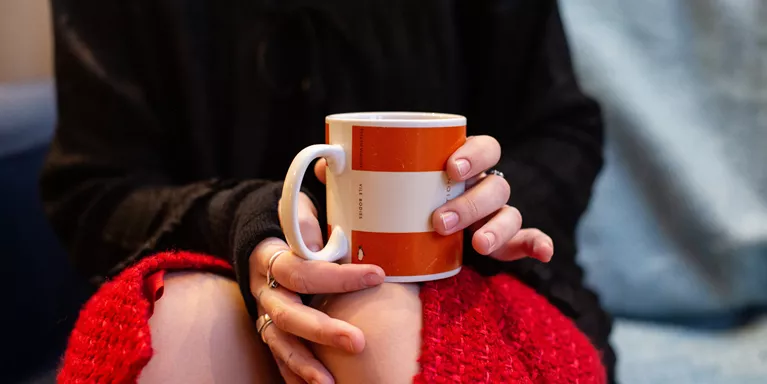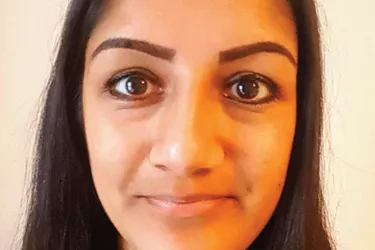I found online mental health support challenging
Georgia blogs about how although online therapy can work for a lot of people, she found it really difficult and ended up sectioned after her face-to-face therapy became digital. She's encouraging people to share their experiences in our survey about online and telephone mental health support to make sure everyone gets the right support for them.
The coronavirus pandemic has had a huge impact on so many of us. For me, not getting the support from the NHS I would normally get face-to-face was awful. About a year or so ago, I was given a diagnosis of borderline personality disorder and I’m under the care of a community mental health team. But then Covid-19 came in like a whirlwind.
I received very little support in how best to engage with therapy online and just felt thrown into it
Suddenly I was told my therapy would now be ‘digital’. I was offered group therapy on Zoom, and it felt like it was either digital therapy or nothing. I received very little support in how best to engage with therapy online and just felt thrown into it. I didn’t feel like I had a choice.
Why group therapy is challenging
Doing group therapy online was really challenging for me for so many reasons. I found it difficult to know when to talk, particularly in a group video call. Sometimes stuff I said got misread by the therapist. I think this happens much more online, perhaps because they can’t see my body language to help them understand how I’m really feeling. I also had little reassurance that the therapy sessions were confidential. You don’t know who can hear you on the other end of people’s video calls, or whether video calls are recorded in anyway. It was just another thing to worry about.
Normally after a therapy session I can feel pretty low, but I’ve always found that the drive home is a really good time to help process the session, feel better and give me a bit of distance from it all. Being in my home meant I couldn’t do that. Suddenly my safe place didn’t feel quite so safe at all.
During one of my online group sessions I started finding it incredibly distressing, so I just turned my camera off and left the group. I found myself having a complete crisis and was harming myself. I heard nothing from the therapist for over an hour after I left the session. I kept thinking that they wouldn’t have let me leave the building in the state I was in, but online, it felt like nobody noticed. I just felt completely alone.
I kept thinking that they wouldn’t have let me leave the building in the state I was in, but online, it felt like nobody noticed. I just felt completely alone.
By the time the therapist got in touch to check in with me, it was too late. I was sectioned soon after and spent some time in hospital. I don’t think this would have happened if I’d been with a therapist face-to-face.
The good that came out of it
Some good has come of all of this. I now have a clear process with my community mental health team, so that someone checks in with me immediately after each session to make sure I’m safe. It’s meant I’ve been able to carry on with sessions online while they haven’t been able to be face-to-face. And I’ve felt a bit safer. I just wish this had been put in place before I hit crisis point. The use of any therapy or similar online should be built into people’s care and crisis plans before anything goes wrong. And we need to know more about how the NHS is making sure things are confidential.
We can’t let this become what services fall back on, and it be the only option. One size does not fit all.
Therapy can definitely work online and it works really well for some people, especially people that struggle to leave their home. But we can’t let this become what services fall back on, and it be the only option. One size does not fit all.
The importance of choice
We need to have choice and be to able to tell people what works for us. Whether that’s support face-to-face, phone calls or something online. Or some mix of all of them. I know that for me, when it’s safe to do so, face-to-face support will always be something I need. But I’ve also learnt what’s helpful for me online too.


Information and support
When you’re living with a mental health problem, or supporting someone who is, having access to the right information - about a condition, treatment options, or practical issues - is vital. Visit our information pages to find out more.
Share your story with others
Blogs and stories can show that people with mental health problems are cared about, understood and listened to. We can use it to challenge the status quo and change attitudes.















